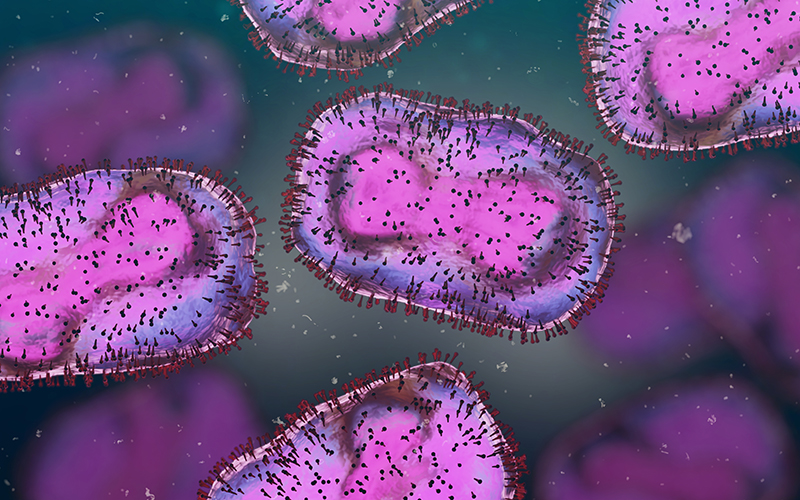
In recent years, mpox has emerged as a public health concern, with outbreaks drawing increased attention. In this Q&A, we talk with Valley Infection Preventionist Amelia Hanron, MPH, MLS (ASCP), as we explore what mpox is, how it spreads, and what you need to know to protect yourself and others.
Q: What is mpox (formerly called monkeypox), how is it spread, and what are the symptoms?
A: Mpox is a disease caused by a virus that can be spread with close skin-to-skin contact, including sexual contact. It can also be spread by touching clothes or objects that someone infected with mpox has touched recently. People with mpox often get a distinctive rash that can be on the hands, feet, chest, face, mouth, or near the genitals. People may also get a fever, chills, muscle aches, and respiratory symptoms (e.g. cough, stuffy nose, etc). There are two different kinds of mpox viruses, called Clade I and Clade II. Both clades are spread between people in the same way, and both have similar symptoms.
Q: I’ve been hearing a lot about mpox in global news lately. What is the current status, and should I be concerned?
A: In August the World Health Organization declared a Public Health Emergency of International Concern due to an ongoing outbreak of Clade I of mpox in Central Africa. Clade I can cause more severe disease compared to Clade II. So far, there have only been two cases reported outside of Africa, and both of those were in people who had recently traveled from affected African countries. There have been no cases of Clade I mpox in the U.S. This is different than the outbreak of the milder Clade II virus that caused an outbreak in the United States in 2022. Clade II is still circulating in low levels in the U.S., but causes much less serious illness than Clade I.
Q: Who are the people most at risk for mpox and should they get vaccinated?
A: Seattle & King County Public Health recommend that the following communities get vaccinated for mpox:
- Any men, transgender people, or non-binary people who have sex with other men or transgender/non-binary people
- People of any gender who engage in commercial/transactional sex (e.g. sex in exchange for money, shelter, food, or other goods or needs)
- Anyone who has had skin to skin or other close contact with someone who has mpox
The vaccine has shown to be effective against both clades of mpox and may help prevent disease or make it less severe. It is a two-dose vaccine, where the second dose is given at least four weeks after the first dose.
Q: Since Valley is no longer offering the vaccine, where can I go to get the vaccine?
A: The Sexual Health Clinic at Harborview Medical Center is providing vaccines to eligible people; please call 206.744.3590 for availability. You may also inquire with your healthcare provider for the best way to obtain a vaccine.
Q: What if I have more questions?
A: You can find extensive information on mpox on the CDC’s website, or speak to your healthcare provider.

